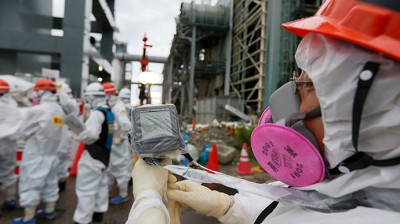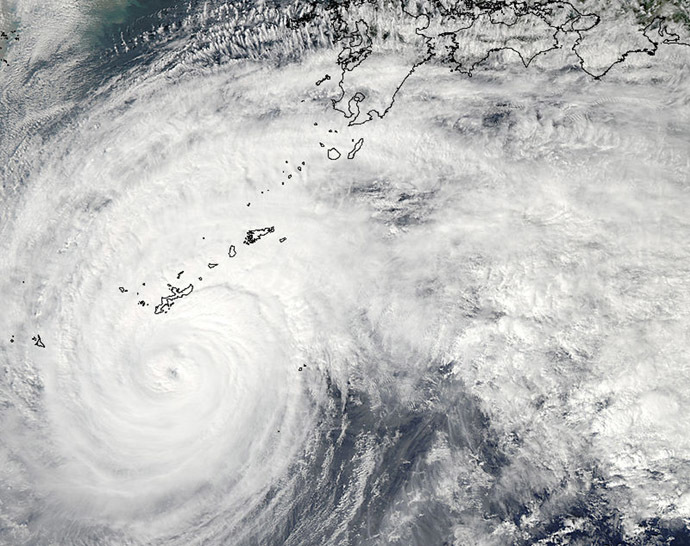Radiation Levels at Fukushima Rise to Record Highs After Typhoon

The amount of radioactive water near the Fukushima Daiichi nuclear plant has risen to record levels after a typhoon passed through Japan last week, state media outlet NHK reported on Wednesday.
Specifically, levels of the radioactive isotope cesium are now at 251,000 becquerels per liter, three times higher than previously-recorded levels. Cesium, which is highly soluble and can spread easily, is known to be capable of causing cancer.
Meanwhile, other measurements also show remarkably high levels of tritium – another radioactive isotope of hydrogen. Samples from October 9 indicate that there are 150,000 becquerels of tritium per liter in the groundwater near Fukushima, according to Japan’s JIJI agency. Compared to levels recorded last week, that’s an increase of more than 10 times.
Additionally, “materials that emit beta rays, such as strontium-90, which causes bone cancer, also shattered records with a reading of 1.2 million becquerels, the utility said of the sample,” JIJI reported.
 Image: A Moderate Resolution Imaging Spectroradiometer (MODIS) image from NASA’s Aqua satellite shows Typhoon Vongfong in the Pacific Ocean, approaching Japan’s main islands on its northward journey October 11, 2014. (Reuters / NASA)
Image: A Moderate Resolution Imaging Spectroradiometer (MODIS) image from NASA’s Aqua satellite shows Typhoon Vongfong in the Pacific Ocean, approaching Japan’s main islands on its northward journey October 11, 2014. (Reuters / NASA)
Officials blamed these increases on the recent typhoon, which resulted in large amounts of rainfall and injured dozens of people on Okinawa and Kyushu before moving westward towards Tokyo and Fukushima.
While cesium is considered to be more dangerous than tritium, both are radioactive substances that authorities would like to keep from being discharged into the Pacific Ocean in high quantities.
For now, extra measures to contain the issue are not on the table, since
“additional measures have been ruled out since the depth and scope of the contaminated water leaks are unknown, and TEPCO already has in place several measures to control the problem, such as the pumping of groundwater or walls to retain underground water,”
according to the IANS news service.

